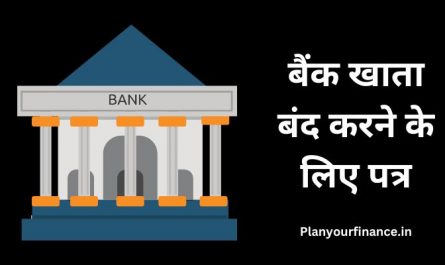Call money is a type of short-term, non-interest bearing loan. It is typically used to cover the shortfall between the cash on hand and the amount required for a transaction.
It’s also known as “carrying money” or “fetching money.” It can be collected in advance and paid out immediately, or it can be advanced later when there’s an outstanding balance that needs to be covered. It’s commonly used in businesses like restaurants, bars and dry cleaners.
The term “call money” refers to the fact that the money is collected on a call. Because of this, it’s also known as the “calling in” or “calling-up” of funds. While this usually refers to cash that is advanced to a business, it can also refer to credit card transactions when the amount falls short.

Table of Contents
What is Call Money?
Call money refers to a short-term loan given by banks and other financial institutions on a collateral basis through the issuance of negotiable instruments called Call Money Certificates (CMCs). The borrower of call money deposits a certain amount of funds with the bank, which issues CMCs or promissory notes that can be redeemed by the depositor. The rate of interest charged on these loans differs from bank to bank.
Call money consists of two types of borrowings. The first is a bank lending to its customers, and the second is a customer borrowing from his/her deposit with the bank. Call money is used in situations where funds are needed immediately or when an expense must be paid immediately.
Call money involves an advance deposit by the business on which it will be repaid by a short-term loan, for example, for services such as supplies and payroll.
Advantages of Call Money
- It’s a short-term cash advance.
- It helps businesses to fund operating expenses and meet urgent needs when they arise.
- It minimizes the risk involved in lending money to customers, since the funds are deposited with the bank. The bank will not allow balances to run negative, limiting the risk of loss if a customer fails to repay his loan on time or at all.
- Customers pay interest on the loan, which is often low, compared to other financing options.
- Loan funds can be obtained quickly and easily. The process doesn’t require investors, bankers, or lawyers.
- Call money is a versatile financing tool that businesses can use to cover expenses over the short term or to fund working capital needs.
- It’s useful for businesses that typically have a number of outstanding payments due at the same time, such as contracting companies, suppliers, or trade creditors who need to make payroll deposits on a weekly basis and meet day-to-day operating expenses.
- Some companies prefer to obtain short-term financing via call money, instead of arranging a long-term loan with a bank or other lending institution. This is due to the added flexibility of not being locked into interest rate payments for a set term.
Disadvantages of Call Money
- It is generally not a suitable solution for someone who needs to borrow large sums of money over a long period of time.
- It can be used by businesses to draw down funds from the bank too often, creating a negative balance on the bank side.
- The loan may be called in at short notice, if required by the bank.
- Even though banks usually limit the amount of call money that can be borrowed, businesses may still experience cash-flow issues if they have a high number of outstanding payments due at one time.
- Interest rates on call money are generally higher than other forms of financing, such as a bank loan, even with a fixed rate. This should be considered when comparing financing options.
- The use of call money can create a situation where the business depends on this short-term financing source. This can create problems if the source dries up for some reason.
In India, Call Money is known as “Fetching Money” or “Carrying Money” in common language and it is used by businessmen to meet their working capital requirements or to cover shortage of funds due to any circumstances arising out of un-expected expenditures like delay in getting payments from customers, cash flow problems etc.
Call Money vs. Short Notice Money
Call money is a short-term loan, which is usually advanced after getting a certificate from the customer. Whereas, in case of Short Notice Money the money can be given without any certificate from the customer.
While call money involves advance deposit by the business on which it will be repaid by a short term loan to meet working capital requirements, Short Notice Money refers to a situation where the bank gives its own funds to borrower without any security.
Call Money demand is primarily met due to shortage of liquid funds and delay in disbursement from the customers. Whereas Short notice money demand primarily comes from delay in payment from customers.
Borrowing From the Bank Using Call Money
A business takes a loan from a bank using call money. The business needs to have sufficient capital and surplus funds on hand before it borrows from the bank using call money.
Is call money risky?
Call money is a secured loan as the bank takes collateral security in the form of CMCs. The bank, therefore, has no credit risk in lending call money.
What’s the interest rate on call money?
The interest rate on a loan taken from the bank using call money depends on the demand and supply forces prevailing in the market at any given time. Usually banks charge a higher rate of interest for loans taken by corporations rather than those taken by individuals and unincorporated businesses.
What’s security against call money?
Before a bank lends to a business using call money, it takes collateral security in the form of CMCs. CMCs are redeemable by the borrower on demand. They are payable on demand or at a day’s notice. An additional collateral security can be taken from the borrower if required.

Is it always profitable to borrow using call money?
Yes, provided the bank rates are lower than the rates at which funds can be raised through trade credit or bills discounted in the market.



